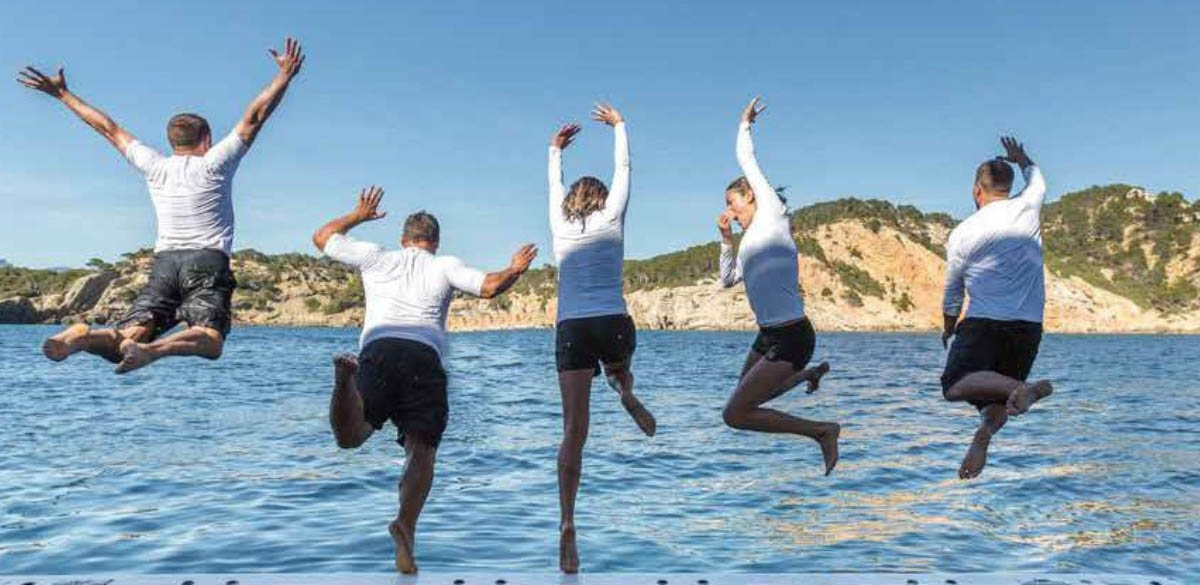There are many great Captains and senior crew who are doing an excellent job. They are fair, competent and organised; they don’t micromanage and they keep their emotions in check. However, they can still find themselves with crew who are de-motivated, disengaged and all too often leave within a short period of time.
Lord Mark Price spent 34 years working for the John Lewis Partnership, including as Managing Director of Waitrose. Price measured the ‘happiness’ levels of his staff and found a direct correlation to increased profits, less waste, less sickness absenteeism and greater longevity of staff.
“I believe business is a force for good in society and it has the capacity to create a fairer and happier world. Happiness isn’t a light-hearted concept, it’s a serious tool for business. The happier your employees, the happier your customers, and the healthier your organisation.”
According to Price, productivity and performance improve naturally if you have a happy and motivated workforce. Motivation is the force that causes us to take action, whether to eat a snack to reduce hunger or go for a run to get fit. The forces that drive our motivation can range from physical and emotional to social and reasoned. Motivation matters more today than ever before. People have changed their attitudes towards work, with higher expectations and greater demands. If we want to retain crew, we need to do more. We also need to motivate them and that means more than just praise and recognition (although they are important too).
In the 1900s there was a belief that all you needed was a stick and a carrot to motivate crew. Today the theorists believe there is a third intrinsic motivation – the desire from within a person to complete a task. Dan Pink has found that the more complex and creative a task is, the traditional rewards such as financial incentives can, in fact, lead to reduced performance!
According to Pink, you require three key ingredients to tap into intrinsic motivation:-
Autonomy – opportunity to direct and have control of your own life
Mastery – opportunity to get better and better, improve and develop
Purpose – connecting to a cause greater than yourself
We recently met a Captain who was able to gain longevity from his crew – 7 years’ worth! The only reasons they left were to retire from the industry or take a very senior position. So we asked him what he thought made the difference, and he had some interesting answers:
- “We pay our crew a little better than average – but only a little. We don’t want them to stay just because they can’t get a similar salary somewhere else.”
Dan Pink said, “You need to pay people enough money to get the issue of money off the table”.
- “We are a race yacht which helps to keep everyone focused on our purpose, but it can be challenging when we take on the race crew. They don’t always work like us, although we are starting to get some stability and longevity with them, too.”
This relates to purpose. It is important to have a clear common goal for the entire crew and not different ones for each department.
- “Crew receive 1:1 meetings every month to discuss their development – whether that be to continue working in the industry or not. Deck and engineering crew stay and progress and only move on to take their own command. I now never steer or park the boat, anyone can, and when someone has attended a course, they are expected to put that learning into practice on the boat.”
This links with Mastery and a sense of getting better and better. Development is key to helping crew feel motivated and valued. Many of the crew who completed the crew turnover survey stated that they would have stayed on a vessel for longer if they had the opportunity to progress and do courses.
And finally…
- “I make sure that there are at least two crew cars so that they are not “stuck” on the boat. I also encourage them to do off-boat activities and not just ones involving drinking and eating – although at times we do that too! I often take the weekend watches so that the crew are free to leave.”
- “We work long hours at times -like everyone in the industry- but when we don’t have guests on, we finish when the jobs are done, agreeing in advance what needs to be done on a weekly and daily basis. Everyone helps each other out, that way we all finish work at the same time.”
Both of the last two points relate to Autonomy and helping crew feel that they have some control over their lives.
Over the years, we have heard crew talk about some great ways to motivate people, from giving them their own area to take responsibility for, such as starting with lockers and progressing to tenders. The larger the tender, the greater the recognition for their performance and levels of responsibility. Giving crew 3 weeks’ additional leave each year to complete courses (not necessarily paid for), is a great motivational incentive.
Of course, every yacht is different and maybe not all of this is possible on your vessel. But why not brainstorm a few new ideas to motivate your crew and try them out this season?!
Impact Crew specialises in on-board team and leadership development. Why not invite us aboard to bring some energy and motivation to your crew?!
Contact us info@impactcrew.com




























0 Comments